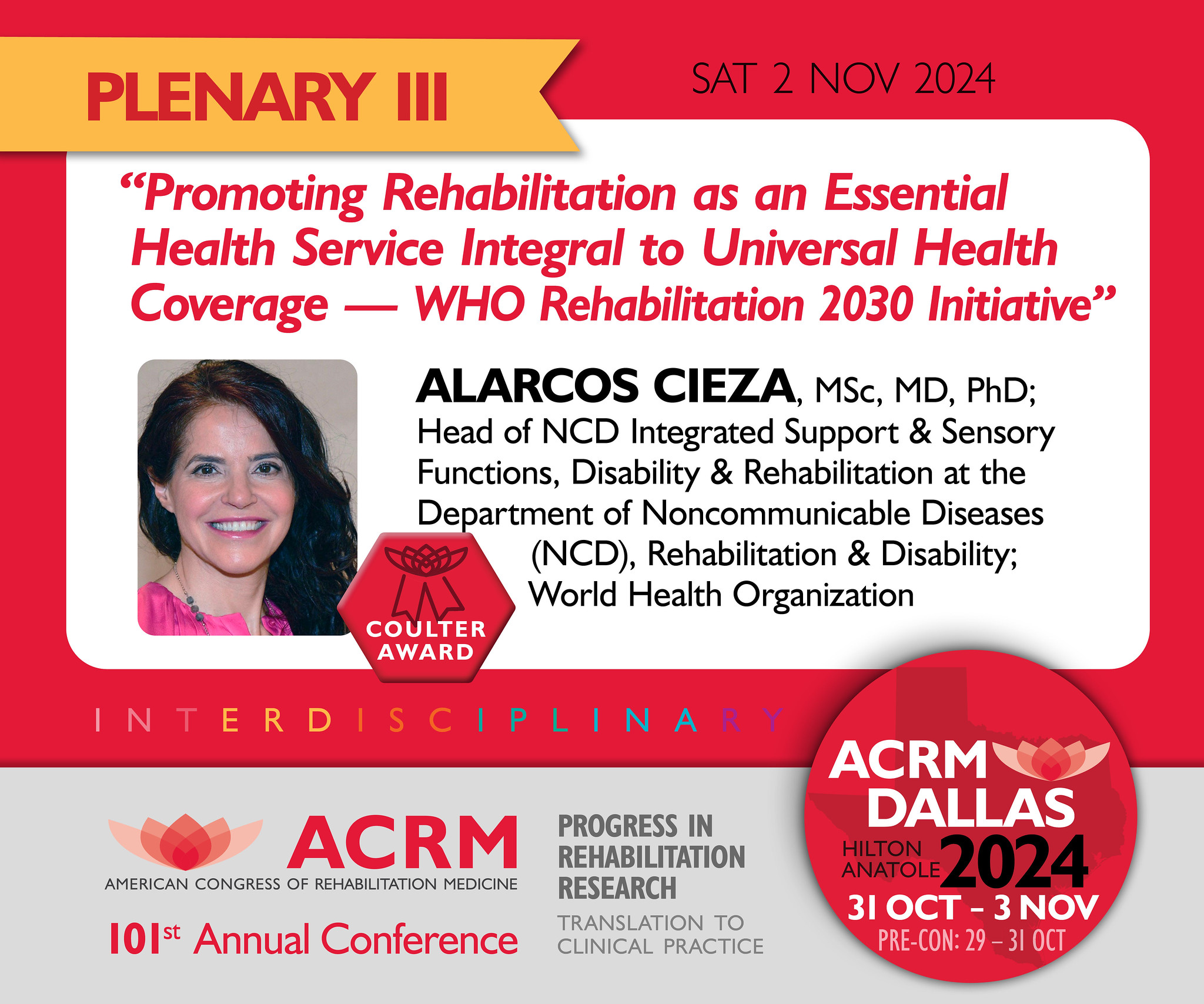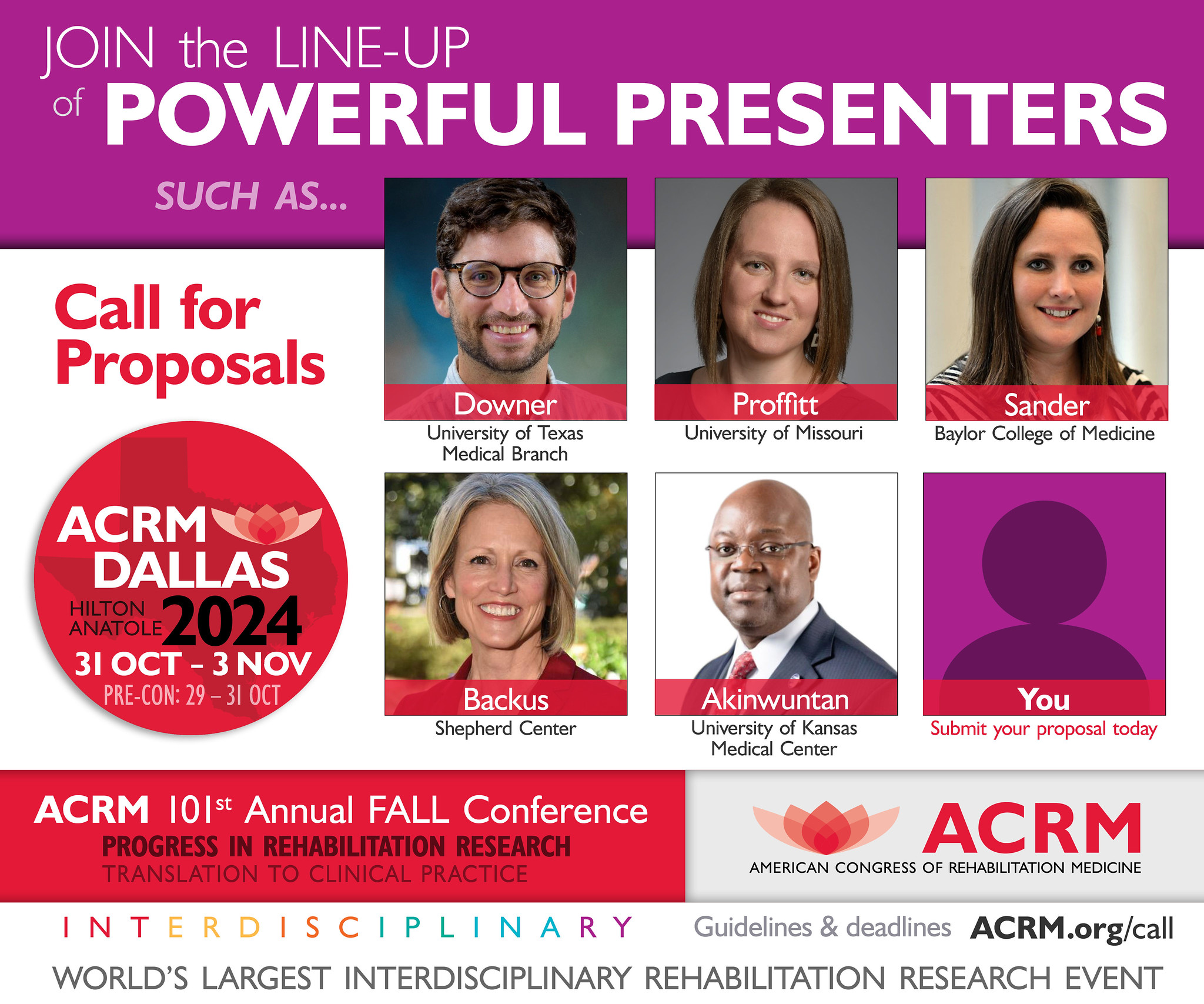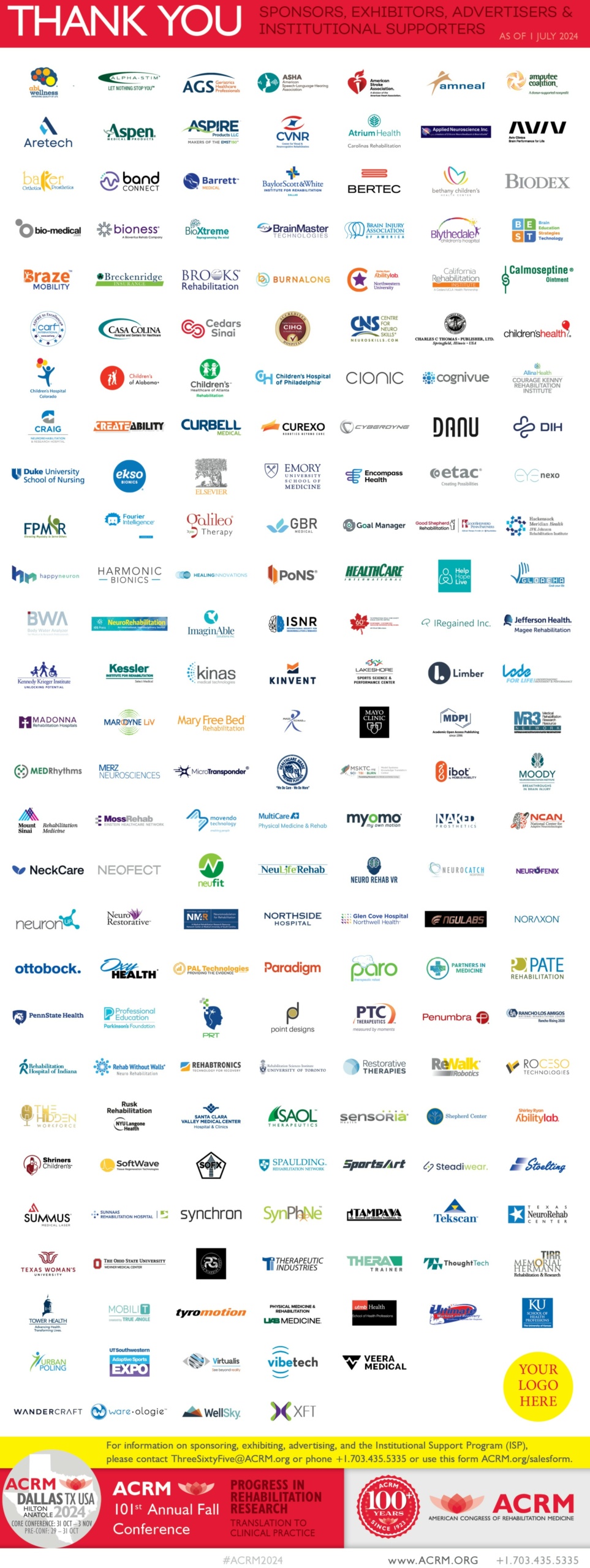Meet the 2019 BI-ISIG Annual Conference Travel Scholarship Recipients
Scholarships are awarded to early career professionals within five years of completion of training (i.e., terminal degree or fellowship training) or consumers. They must plan to attend ACRM’s Annual Conference, be active participants in a BI-ISIG Task Force, and receive a nomination endorsement from their Task Force chair(s). The BI-ISIG Executive Committee is thankful and excited to provide scholarships for the past four years. We sincerely thank all who applied and encourage all to consider applying in the future. Five emerging scholars were selected and interviewed to learn how they became actively involved in the BI-ISIG. Please help us with congratulating our 2019 travel scholarship recipients:
Reza Ehsanian, MD, PhD
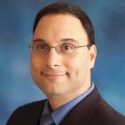 Reza Ehsanian, MD, PhD is a PGY-2 Resident in the Division of Physical Medicine & Rehabilitation, Department of Neurosurgery at the University Of New Mexico School Of Medicine. He is also a Visiting Scholar in the Department of Neurosurgery at Stanford University School of Medicine. Dr. Ehsanian’s current research interests include the current practices and perceived needs of community-based brain injury rehabilitation programs (BI-ISIG Community-Based Treatment Task Force), sex and gender reporting in rehabilitation research (Girls and Women with ABI Task Force), the efficacy of complementary integrative treatment approaches for TBI (CIRM Evidence-Based Guidelines Task Force), and the clinical effectiveness of interventional spine procedures to treat pain, and functional electrical stimulation to restore bladder and bowel function in SCI (ClinicalTrials.gov Identifier: NCT02978638).
Reza Ehsanian, MD, PhD is a PGY-2 Resident in the Division of Physical Medicine & Rehabilitation, Department of Neurosurgery at the University Of New Mexico School Of Medicine. He is also a Visiting Scholar in the Department of Neurosurgery at Stanford University School of Medicine. Dr. Ehsanian’s current research interests include the current practices and perceived needs of community-based brain injury rehabilitation programs (BI-ISIG Community-Based Treatment Task Force), sex and gender reporting in rehabilitation research (Girls and Women with ABI Task Force), the efficacy of complementary integrative treatment approaches for TBI (CIRM Evidence-Based Guidelines Task Force), and the clinical effectiveness of interventional spine procedures to treat pain, and functional electrical stimulation to restore bladder and bowel function in SCI (ClinicalTrials.gov Identifier: NCT02978638).
How did you first get involved in ACRM and several BI-ISIG Task Forces?
The BI-SIG allowed me the unique opportunity to be involved with world-class research studies and receive mentorship from accomplished researchers. As a direct result of being active in the BI-ISIG Community Based Treatment Task Force, I have had the unique opportunity to work on projects like “current practices and perceived needs of community-based brain injury rehabilitation programs” as well as “sex and gender reporting in rehabilitation research” as part of the Girls and Women with ABI Task Force. By reaching out to the task force chairs, you will be directed to the appropriate project leaders.
What advice would you give early career professionals interested in actively participating in Task Forces? My advice is to first check out the website and read the projects/mission of the different BI-ISIG Task Forces. Then, reach out to their chairs with questions. Ask to join the teleconferences and listen to what project needs each group has…everyone is very welcoming!
Raj Kumar, PhD, MPH
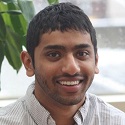 Raj Kumar, PhD, MPH is a Postdoctoral Fellow in Rehabilitation Research at the Icahn School of Medicine at Mount Sinai. Dr. Kumar’s current research is broadly focused on evaluating chronic physical, mental, and cognitive health after TBI. In his postdoc, he focused on leveraging existing large cohort studies to evaluate health and cognitive differences between individuals with TBI and their counterparts without TBI in the general population.
Raj Kumar, PhD, MPH is a Postdoctoral Fellow in Rehabilitation Research at the Icahn School of Medicine at Mount Sinai. Dr. Kumar’s current research is broadly focused on evaluating chronic physical, mental, and cognitive health after TBI. In his postdoc, he focused on leveraging existing large cohort studies to evaluate health and cognitive differences between individuals with TBI and their counterparts without TBI in the general population.
How did you first get involved in ACRM and the Chronic TBI Task Force?
I first attended ACRM in 2016, where I presented results from a TBI Model Systems National Database study on comorbidities among individuals with TBI. Soon after, I learned about the Chronic TBI Task Force, and thought its scope would be a great fit for me given my research interests.
What advice would you give early career professionals interested in actively participating in Task Forces?
It’s really important to attend the Task Force meeting at the ACRM Annual Conference. This is where everyone is in a room, and is often the “think tank” for ideas. Don’t be afraid to jump onto a project, even if you aren’t an expert on the topic; there will be some way that you can still contribute. It certainly will require work outside of the meeting itself, but it’s a great way to get your name out there. Overall, I have found ACRM a very welcoming community for early career researchers. I’d really encourage submitting a poster of your research. I found that actively engaging with other ACRM members about your own research, and also walking around the poster session to learn about other people’s research, is one of the best ways to meet and form connections with other ACRM members.
Jennifer Lundine, PhD, CCC-SLP
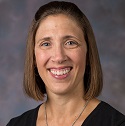 Jennifer Lundine, PhD, CCC-SLP is an Assistant Professor in the Department of Speech & Hearing Science at The Ohio State University, and a Principal Investigator in the Division of Clinical Therapies & Inpatient Rehabilitation Program at Nationwide Children’s Hospital. Dr. Lundine’s current research focuses on improving gaps in access to and utilization of services designed to support children with acquired brain injury (ABI) and identifying specific approaches that would improve assessment and treatment practices of cognitive-communication disorders following pediatric ABI.
Jennifer Lundine, PhD, CCC-SLP is an Assistant Professor in the Department of Speech & Hearing Science at The Ohio State University, and a Principal Investigator in the Division of Clinical Therapies & Inpatient Rehabilitation Program at Nationwide Children’s Hospital. Dr. Lundine’s current research focuses on improving gaps in access to and utilization of services designed to support children with acquired brain injury (ABI) and identifying specific approaches that would improve assessment and treatment practices of cognitive-communication disorders following pediatric ABI.
How did you first get involved in ACRM and the Pediatric & Adolescent Task Force?
I got involved in ACRM and the Pediatric/Adolescent task force as I was finishing my doctorate. In 2016, just after I graduated, I presented a poster at ACRM that shared results of a study we did at Nationwide Children’s Hospital, looking at adherence to follow-up appointments in the first year after a child is admitted to the hospital with a TBI. We found nearly 25% of kids don’t ever return for a follow-up appointment. It was an amazing networking opportunity. At one conference, there were people from so many disciplines relevant to my work – AND they had a small group focusing specifically on pediatric brain injury, which is very unique. I knew ACRM was the right group for me to join – and a conference I would put into my rotation.
What advice would you give early career professionals interested in actively participating in Task Forces?
Getting involved in Task Force work is easy! I encourage people to make connections with other researchers/clinicians in their area(s) of interest — reach out via email, use ACRM resources to identify people or their contact info. Contact senior researchers and other early career individuals and discuss possible collaborations. A current project I’m working on in the Pediatrics/Adolescent task force grew organically as we met at one of the ACRM conferences. The project focuses on families of children with acquired brain injury. We are completing a scoping review to identify key barriers and facilitators affecting initiation of services and adherence to medical follow-up after pediatric acquired brain injury. It fits with my line of research, and there were others who were willing to work on it, and we’ve been moving things forward together.
Jacyln Stephens, PhD, OTR
 Dr. Stephens is an Assistant Professor in the Department of Occupational Therapy, and an Affiliate faculty in Molecular, Cellular, and Integrative Neuroscience at Colorado State University. Dr. Stevens’ current research is focused on understanding subtle deficits of mild traumatic brain injury, including deficits induced by sports-related concussion, and use both behavioral and neuroimaging techniques to evaluate this population.
Dr. Stephens is an Assistant Professor in the Department of Occupational Therapy, and an Affiliate faculty in Molecular, Cellular, and Integrative Neuroscience at Colorado State University. Dr. Stevens’ current research is focused on understanding subtle deficits of mild traumatic brain injury, including deficits induced by sports-related concussion, and use both behavioral and neuroimaging techniques to evaluate this population.
How did you first get involved in ACRM and the Pediatric & Adolescent Task Force?
My postdoctoral fellowship was focused on pediatric traumatic brain injury, and my post-doc mentor invited me to a task force meeting during my first attendance of ACRM in 2016.
What advice would you give early career professionals interested in actively participating in Task Forces?
My advice to other early career individuals is: Joining a task force is an ideal way to understand the “big picture” issues with the populations you research and to stay energized about the larger impact of your work. It is also an amazing way to find new publication opportunities, connect with senior researchers, and enhance your visibility in your research area, (which is essential for tenure!).
Eric Watson, PhD
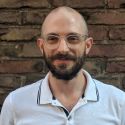 Eric Watson, PhD is a Clinical Neuropsychology and Rehabilitation Research Postdoctoral Fellow at the Icahn School of Medicine at Mount Sinai. Dr. Watson’s current research developed from his clinical experiences, which both have one thing in common: to improve the quality of life for survivors of brain injury. As such, Dr. Watson’s dedicated research interests lie in the areas of chronic TBI, aging, behavioral sleep medicine, health psychology and health behavior change, and cognitive rehabilitation.
Eric Watson, PhD is a Clinical Neuropsychology and Rehabilitation Research Postdoctoral Fellow at the Icahn School of Medicine at Mount Sinai. Dr. Watson’s current research developed from his clinical experiences, which both have one thing in common: to improve the quality of life for survivors of brain injury. As such, Dr. Watson’s dedicated research interests lie in the areas of chronic TBI, aging, behavioral sleep medicine, health psychology and health behavior change, and cognitive rehabilitation.
How did you first get involved in ACRM and the Chronic TBI Task Force?
My journey with ACRM began with my first conference in 2016 as a newly minted postdoctoral fellow in clinical neuropsychology and rehabilitation research with the Icahn School of Medicine at Mount Sinai. My mentor supported my decision to attend the Early Career Development Course to explore available opportunities, to make connections with seasoned professionals and organizational leaders, and to receive mentorship from some of the most renowned members of the ACRM community. I have since formed many collaborations, mentorship opportunities, and friendships that have grown over the years. I look forward to nurturing these relationships and becoming increasingly more involved with ACRM and the Chronic TBI Task Force.
What advice would you give early career professionals interested in actively participating in Task Forces?
My advice is to get involved with Task Force work as early as possible. Networking for early career professionals is essential for success and career advancement. I’ve been fortunate to connect with a number of seasoned researchers through ACRM’s early career professional programming and Task Force work. These connections have not only contributed to my involvement in the Task Force’s mission via various projects, but also have blossomed into unofficial mentoring opportunities that have guided and shaped my research and clinical interests.


